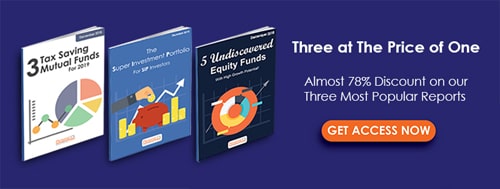 (Image by Gino Crescolia on pixabay)
(Image by Gino Crescolia on pixabay)
'There are risks and costs to action. But they are far less than the long-range risks of comfortable inaction' - John F Kennedy
But the question is, how big is the risk you are willing to take?
Especially in terms of investment!
I have observed that a moderate investor is willing to take medium/moderate investment risk.
Are you a moderate risk investor?
A moderate risk investor is willing to accept periods of market volatility in exchange for the possibility of receiving returns that will outpace inflation by a significant margin in the long run. It means an investor wants to achieve good returns but is uncomfortable taking high market risks.
Risk is defined as the possibility you'll lose money if an investment you make provides a disappointing return. All investments carry a certain level of risk, since investment return is not guaranteed.
Therefore, if you are unwilling to take some investment risk, you are likely to limit your investment return.
[Read: Why Comparing Returns to Risk Is More Meaningful!]
Remember investing is a serious business and the key to successful investing would be to identify your risk profile and invest accordingly. You do not wish to have sleepless nights by investing in the volatile stock market.
The risk profile is basically associated with age, investment time horizon, and financial positioning. As a rule of thumb, risk appetite is highest for a single young person, reducing with age and maturity, and is lowest for the retired individual.
Do you possess these traits of a moderate risk investor?
[Read: Your Mutual Fund Investment Strategy In Falling Markets...]
-
Willing to take reasonable risk: Moderate investors are fully aware that every investment avenue carries the risk of loss if they want to gain in the long run. At the same time, they know the extent they can bear the various levels of risk. In short, they accept the possibility of getting back less than what they expect reasonable risk.
-
Strives to balance: Aims to balance regular income and growth. The willingness to accept higher risks for potentially higher returns, but do not want to endure large swings in the value of investments.
Most retail investors tend to fall into the moderate-risk category. But most potential investors aren't aware that they can invest in mutual funds as per their moderate risk profile. Mutual fund investment offers a diversified strategic portfolio taking cognisance of the investor's financial goals, age, time horizon, and the risk tolerance.
[Read: Things To Note When Investing In Mutual Funds]
Diversification can certainly improve chances, but ultimately one needs to decide if the trade-off of one investment option with another. Generally, a moderate investor should include Large Cap, and Large & Midcap predominantly in their portfolio, along with the willingness of trade-off options.
Even under moderate risk profile, there are variants depending on how big is the risk you are willing to take.
[Read: Best SIPs To Invest In 2019]
Given below table suggests asset allocation for various moderate investors.
Table: Allocation to equity mutual funds
Note: The table chart is for illustrative purpose only
To be honest, there is no official or set definition of a moderate investor (or any kind of investor). Investing is an individualistic exercise, and your ability to take risks depends on a lot of factors.
Hence it would be wise to always define your financial goals and assess your risk profile before you invest in any fund. It could be a daunting task to do it all by yourself because of the research involved in choosing the right fund. Hence, consult an ethical, unbiased, certified, and well experienced financial planner from a reputed company. PersonalFN's Planning department has been operational since 2000, and over the course of these 18 years has amassed a loyal clientele; clients who have trusted the company for 18 years because of the value they've received.
PS: If you aren't sure about which mutual funds to SIP into, don't worry! PersonalFN is offering you three premium reports that cost less than your favourite copy.

These research reports will provide you superlative guidance to select worthy mutual fund schemes to SIP, the ones that have the potential to provide BIG gains, and the ones for your tax planning this year.
Click here for PersonalFN's recommendation and subscribe now.
Add Comments